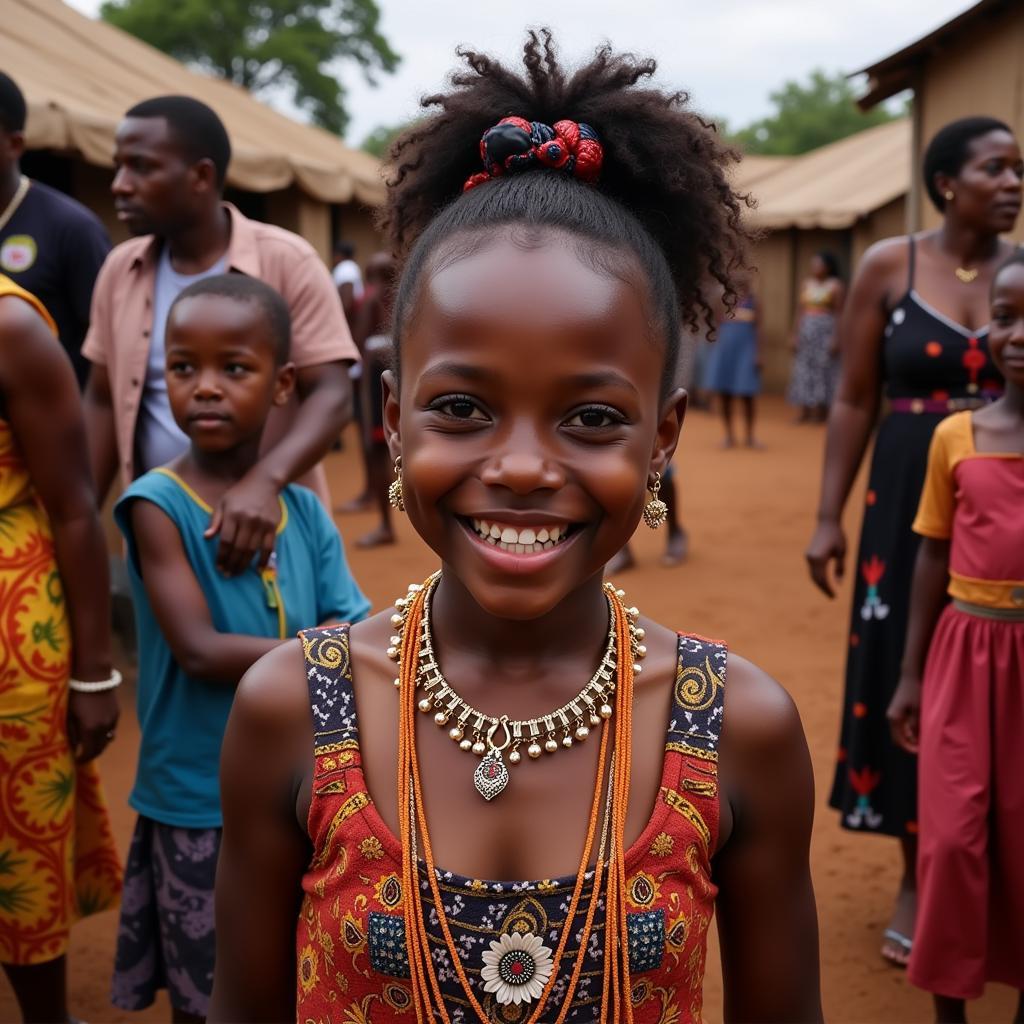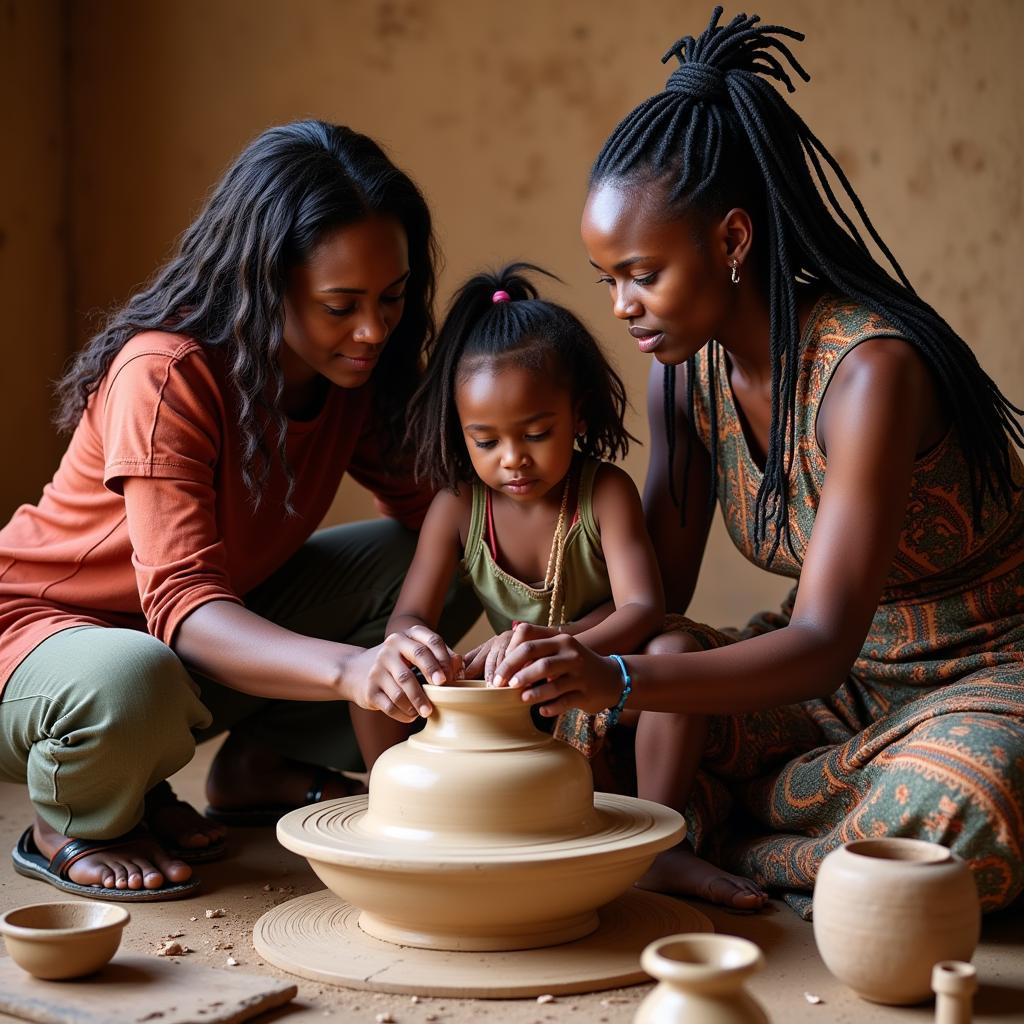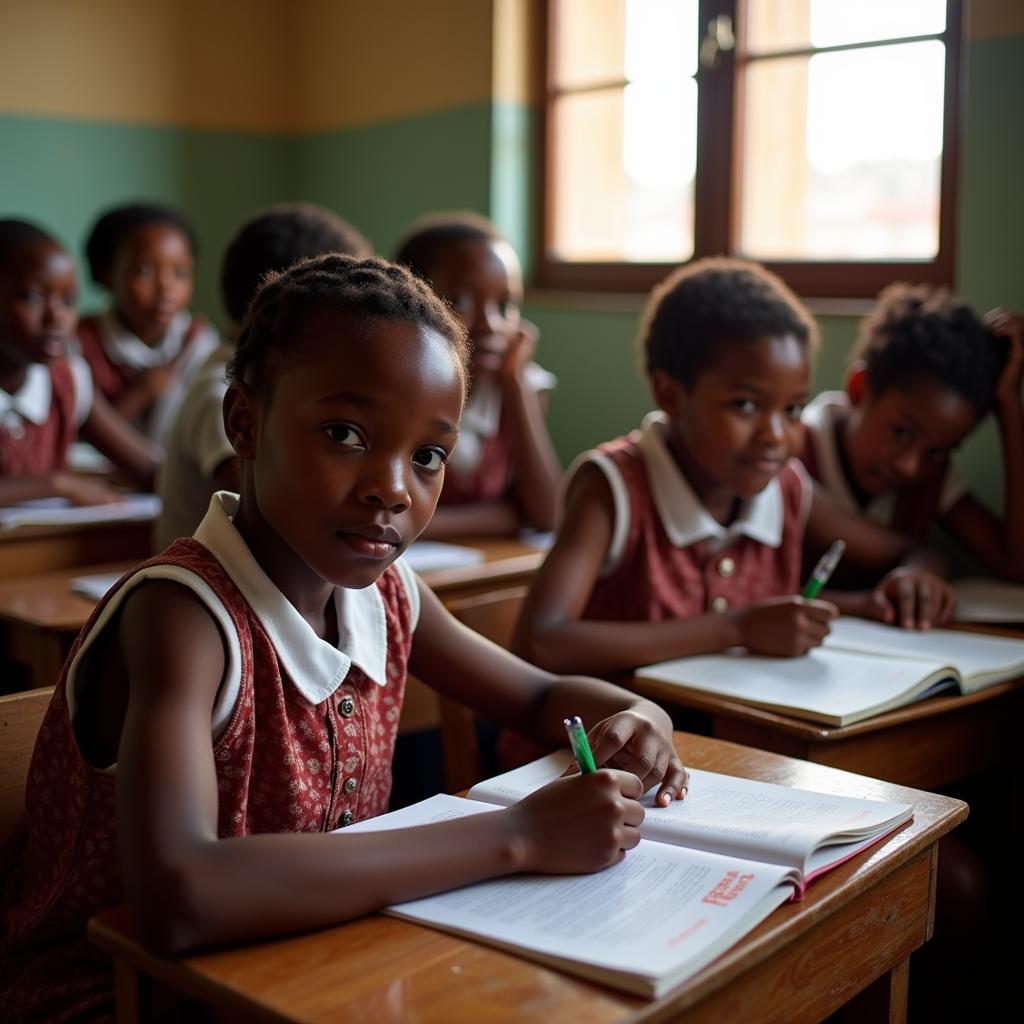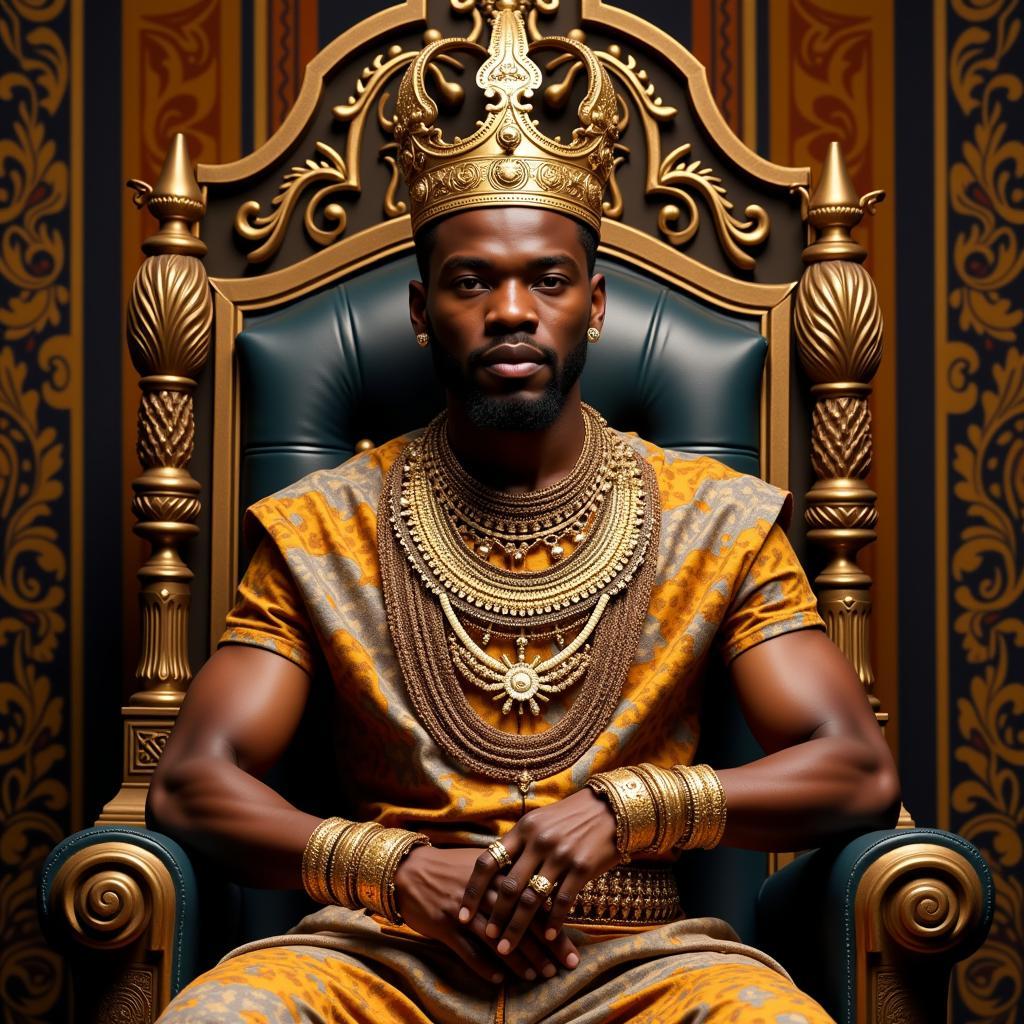The Rich Tapestry of African Culture of Girls
African culture is richly diverse, a vibrant tapestry woven from the threads of countless ethnic groups, traditions, and beliefs. Within this magnificent mosaic, the experiences and roles of girls hold a special significance. This article delves into the fascinating and multifaceted world of African Culture Of Girls, exploring their journeys, challenges, and triumphs.
 African Girl Celebrating Coming of Age Ceremony
African Girl Celebrating Coming of Age Ceremony
The Significance of Tradition and Community
In many African cultures, girls are raised within a strong framework of tradition and community. These two elements are inextricably intertwined, shaping their identities and values from a young age. Elders play a vital role, passing down ancestral wisdom, stories, and customs through oral traditions, songs, and proverbs. These teachings emphasize values such as respect for elders, community responsibility, and the importance of family ties.
For instance, in many West African societies, girls learn traditional weaving techniques from their mothers and grandmothers, ensuring the preservation of cultural heritage and fostering a sense of continuity across generations. Similarly, in East Africa, Maasai girls learn the art of beadwork, creating intricate designs that reflect their cultural identity and social standing.
 African Women Teaching Young Girl Traditional Pottery
African Women Teaching Young Girl Traditional Pottery
Rites of Passage: Marking Milestones in a Girl’s Life
Rites of passage hold immense cultural significance in the lives of African girls, marking important transitions and stages of development. These ceremonies vary widely across different ethnic groups, but they often involve rituals, teachings, and celebrations that symbolize the girl’s entry into womanhood.
One of the most well-known rites of passage is female circumcision, practiced in some communities as a way of preparing girls for marriage and adulthood. However, it’s crucial to acknowledge the ongoing debate surrounding this practice, with many organizations advocating for its abolishment due to health risks and human rights concerns.
Other rites of passage focus on imparting life skills and knowledge. In some cultures, girls undergo seclusion periods, during which they receive teachings on womanhood, marriage, and motherhood from older women. These teachings equip them with the skills and knowledge necessary to navigate the challenges and responsibilities of adulthood.
Education and Empowerment: Shaping the Future
Education is increasingly recognized as a fundamental right and a powerful tool for empowerment for girls across Africa. Access to quality education opens doors to economic opportunities, improves health outcomes, and empowers girls to become agents of change in their communities.
While significant progress has been made in recent decades, challenges remain in ensuring equal access to education for girls, particularly in rural areas and marginalized communities. Poverty, cultural norms, and early marriage can act as barriers to education, limiting girls’ opportunities and potential.
Despite these challenges, many inspiring individuals and organizations are working tirelessly to promote girls’ education and empowerment across the continent. Initiatives focused on providing scholarships, building schools, and challenging gender norms are paving the way for a brighter future for African girls.
 African Girls Studying Together in a Classroom
African Girls Studying Together in a Classroom
The Power of Creativity: Music, Dance, and Storytelling
African culture is infused with vibrant expressions of creativity, and girls play a vital role in preserving and perpetuating these traditions. Music, dance, and storytelling are not merely forms of entertainment; they are powerful mediums for transmitting cultural values, sharing history, and expressing emotions.
Through traditional songs and dances, girls learn about their heritage, celebrate important events, and build community bonds. Storytelling, often passed down orally from one generation to the next, imparts moral lessons, teaches life skills, and keeps cultural memories alive.
Navigating the Future: Challenges and Opportunities
As the world becomes increasingly interconnected, African girls are navigating a rapidly changing landscape filled with both challenges and opportunities. Globalization, technological advancements, and shifting societal norms are influencing their aspirations, dreams, and realities.
While they face ongoing challenges related to gender inequality, poverty, and access to resources, African girls are also demonstrating remarkable resilience, creativity, and leadership. They are breaking down barriers, challenging stereotypes, and using their voices to advocate for change.
From young entrepreneurs leveraging technology to create innovative solutions to activists fighting for social justice and environmental sustainability, African girls are emerging as powerful agents of change, shaping their own destinies and contributing to the continent’s bright future.
FAQ
What are some common coming-of-age traditions for girls in Africa?
Coming-of-age traditions vary greatly across Africa’s diverse cultures. Some common practices include initiation ceremonies, seclusion periods with teachings on womanhood, and celebrations marking the transition to adulthood.
How is education viewed for girls in African culture?
Traditionally, education for girls wasn’t always prioritized. However, there’s a growing recognition of its importance for empowerment and societal progress. Many initiatives are working to increase girls’ access to quality education.
What role do music and dance play in the lives of African girls?
Music and dance are integral to African culture. They provide avenues for girls to connect with their heritage, express themselves creatively, and celebrate important life events.
What are some challenges faced by girls in Africa today?
Girls in Africa face challenges such as gender inequality, limited access to education and healthcare, and harmful practices like child marriage. However, there’s growing awareness and efforts to address these issues.
How can I learn more about specific cultural practices related to girls in different African countries?
Numerous online resources and organizations are dedicated to showcasing the diversity of African cultures. You can find information on specific countries and ethnic groups through research and cultural exchange programs.
Need More Information?
For additional resources and support related to African culture, education, and empowerment initiatives, please contact us:
Phone: +255768904061
Email: kaka.mag@gmail.com
Address: Mbarali DC Mawindi, Kangaga, Tanzania.
Our dedicated team is available 24/7 to assist you.


